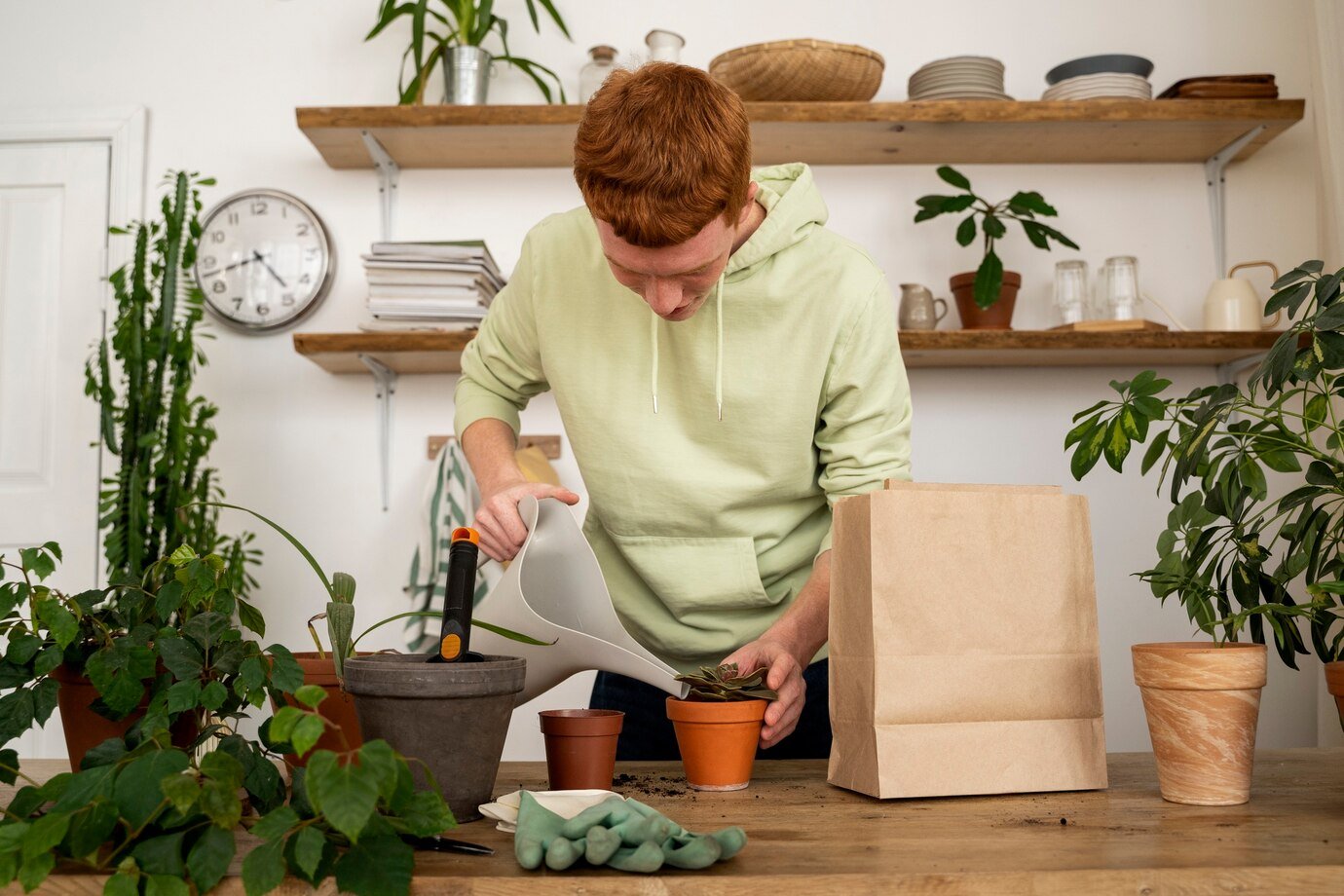Composting is an eco-friendly way to reduce household waste while enriching your garden soil with organic matter. Whether you’re an avid gardener or just looking for ways to live more sustainably, composting is a rewarding practice that benefits both you and the environment. Here’s a beginner’s guide to starting your own home composting system.
Benefits of Composting
Composting turns kitchen scraps and yard waste into nutrient-rich soil amendments. Here are some of the key benefits:
- Reduces waste: Composting diverts organic waste from landfills, decreasing methane emissions.
- Improves soil health: Compost adds nutrients to your soil, improving its structure, water retention, and fertility.
- Saves money: By composting, you’ll spend less on fertilizers and soil conditioners for your garden.
- Encourages sustainable living: Composting connects you to natural cycles and reduces your environmental footprint.
Composting Basics
Composting is essentially nature’s way of recycling. Organic materials decompose with the help of microorganisms, worms, and insects to create humus, a nutrient-rich material that benefits plants. To successfully compost, you need four key elements:
- Browns: Dry, carbon-rich materials like leaves, cardboard, and wood chips.
- Greens: Wet, nitrogen-rich materials such as food scraps, grass clippings, and coffee grounds.
- Water: Moisture is essential for decomposition but avoid over-saturating the pile.
- Air: Aeration speeds up the breakdown process by providing oxygen to microorganisms.
Choosing a Compost Bin
Selecting the right compost bin depends on your space and lifestyle. Here are common options:
- Outdoor compost bins: Ideal for gardens, these bins can handle large amounts of waste and come in various designs, including tumblers and stationary bins.
- Indoor compost bins: Perfect for apartment dwellers, these compact systems include worm bins (vermicomposting) or countertop composters.
- DIY options: Build your own bin using pallets, plastic containers, or wire mesh for a cost-effective solution.
What to Compost and Avoid
Knowing what to put in your compost is key to maintaining a healthy system.
Compostable materials:
- Fruit and vegetable scraps
- Coffee grounds and filters
- Tea bags (non-plastic)
- Eggshells
- Yard waste like grass clippings, leaves, and small branches
- Shredded newspaper and cardboard
Avoid these items:
- Meat, fish, and dairy products (attract pests and produce odors)
- Oily or greasy foods
- Pet waste
- Diseased plants
- Non-biodegradable materials like plastic and metal
Maintaining Your Compost
Maintaining a compost pile is simple once you understand the balance of materials and conditions it needs. Follow these steps:
- Layer materials: Alternate layers of greens and browns to maintain the ideal carbon-to-nitrogen ratio (about 30:1).
- Monitor moisture: The pile should feel like a wrung-out sponge—damp but not soggy.
- Turn the pile: Regularly turning your compost ensures even decomposition and prevents odors.
- Be patient: Depending on conditions, compost can take anywhere from a few weeks to several months to mature.
Common Problems and Solutions
Composting might encounter hiccups, but most problems have simple fixes:
- Bad odor: Likely caused by too much moisture or greens. Add browns and turn the pile to aerate it.
- Pests: Avoid attracting pests by burying food scraps and keeping meat or dairy out of the pile.
- Pile not decomposing: The pile may be too dry or lack nitrogen. Add water and more greens to kickstart the process.
Using Compost in Your Garden
Once your compost is dark, crumbly, and earthy-smelling, it’s ready to use. Here’s how to apply it:
- Mix into soil: Blend compost into garden beds to improve soil structure and fertility.
- Use as mulch: Spread a layer around plants to retain moisture and suppress weeds.
- Make compost tea: Steep compost in water to create a nutrient-rich liquid fertilizer for plants.
Conclusion: Sustainable Living
Starting a home composting system is a simple yet impactful step toward sustainable living. By turning waste into a valuable resource, you reduce your environmental impact and create healthier soil for your garden. Embrace composting, and enjoy the benefits of a greener, more sustainable lifestyle!







